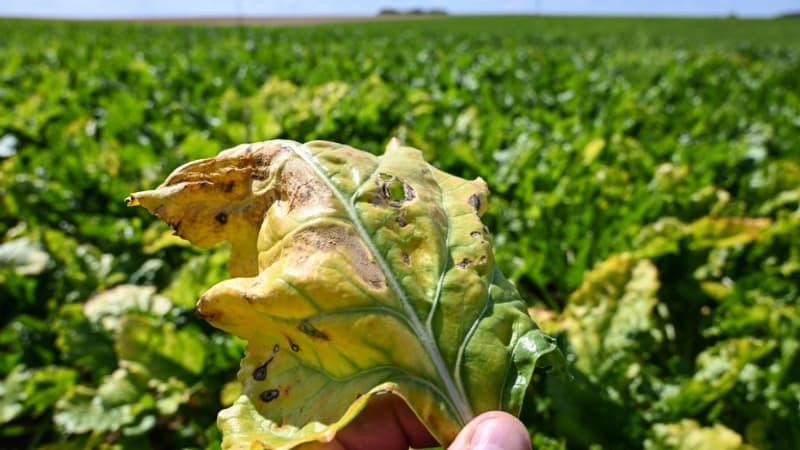It is a “thunder” that falls on the beet sector, which is considered “at the foot of the wall” after the decision of the Government to align itself after that of the Court of Justice of the European Union.
Until now, French farmers benefited from an exception to use neonicotinoids to prevent aphids from contaminating beets with jaundice. It must be said that in 2020, when the insecticide was banned, this jaundice had wreaked havoc: on average, almost 30% of production disappeared, with the most affected farms losing up to 70% of their harvest. And the problem, farmers insist, is that today there is no effective alternative to fight this virus. According to the beetroot union, the specialists working on these alternatives believe that it is “unlikely” that this will see the light of day “before 2026”. They “maybe” see the beginning of a solution by 2024.
A market of 2 to 3 billion euros
Meanwhile, the beets, which must sow in a month and a half, demand a commitment from the State for economic support in case of losses due to jaundice. The Minister of Agriculture, Marc Fesneau, yesterday presented an action plan to professionals in the sector. He said that he was aware of the need to give them “visibility, otherwise [la filière] “could face enormous difficulties.”
Behind the 23,500 French beet growers, there are industrialists. There are 21 sugar factories in France, especially in the northern part of the country. The sector represents no less than 80,000 direct and indirect jobs. Sugar, ethanol or even alcohol are obtained from beets, used in pharmacies or for liquors… The market is estimated at 2 to 3 billion euros. The risk, warns the FNSEA, the main agricultural union, is having to import. And the same issue always comes up: that of the country’s food sovereignty.
Source: BFM TV


